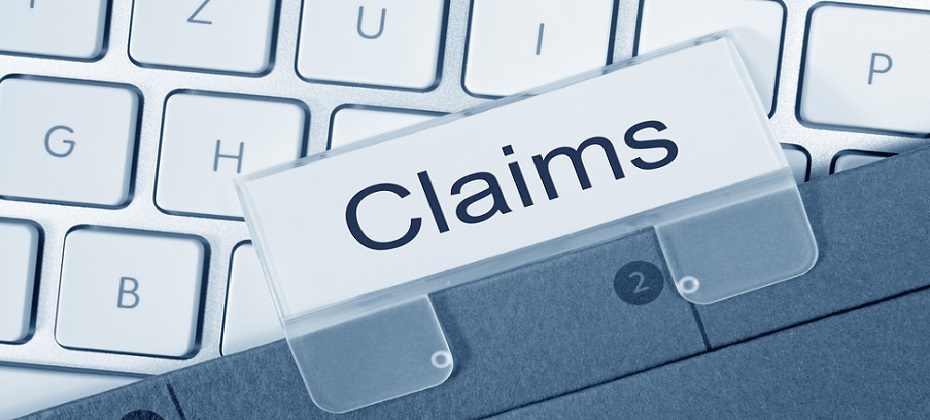Tag: claims management

For many of the 36 million Americans who have registered for unemployment benefits during the coronavirus outbreak, losing their job means losing their health insurance. Options for the newly-unemployed are limited yet complicated: while the federal government has declined to reopen enrollment under the Affordable Care Act, several states are supporting those without coverage by opening emergency enrollment periods for state-based health exchanges. Those that can afford it may extend their existing employer plan through COBRA, while those that can’t may apply for Medicaid. But unfortunately, millions will be left without coverage. Now, with these changes happening in both large quantities and at rapid speed, the process for checking a patient’s coverage status is more complex, time-consuming and susceptible to errors than in normal circumstances. Further errors may appear as patients are forced to switch care teams, leading to disjointed care and incomplete, inaccurate or duplicate health records. It’s a huge administrative and financial burden for providers, who must keep pace with changes to the health insurance landscape or risk a surge in denied claims as a result of patient misidentification. How should they guard against patient identity errors and minimize revenue loss in the wake of COVID-19? How to prevent mismatched patient records and avoidable claims denials A 2018 survey found a third of denied healthcare claims were caused by patient identity errors, costing hospitals an average of $1.5 million. We may see this figure creep up following COVID-19, unless providers move quickly to implement robust identity proofing and patient matching processes. Providers looking to do this should consider prioritizing the following three areas: Eliminate errors during patient registration Up to half of denied claims occur earlier in the revenue cycle, which is also when most duplicate medical records are created. Improving identity proofing during patient scheduling and registration is a logical place to focus, to ensure records are accurate from the start. This should include proactively checking for active coverage as early as possible. Using a Coverage Discovery tool that automatically finds available coverage will help avoid bad debt write-offs and give patients peace of mind. Essentia Health’s Patient Access team were able to find 67% coverage pre-service, for patient accounts that were previously considered self-pay or uninsured. Automate identity matching throughout the revenue cycle When patient records are incomplete, duplicated or overlaid with part of someone else’s record, denied claims become an accepted cost – but they’re often avoidable. Instead of time-consuming and error-prone manual checks, providers should consider using automated identity management software to ensure patient records are accurate and complete. Data-driven matching technology supported by a Universal Patient Identifier allows a single view of each patient to be shared safely and securely across multiple healthcare services. There’s no need for tedious reconciliation work and providers can be confident they’re submitting clean claims each time. Improve identity management protocols for telehealth and mobile services More patients turning to telehealth services and patient portals to minimize face-to-face contact, putting pressure on providers to solve the patient matching problem. And with payers expanding coding for reimbursements for telehealth and remote services, there’s an added imperative to make sure patient information is accurate in order to minimize the risk of claims denials. Victoria Dames, Senior Product Director at Experian Health, says portal access has increased by roughly 40% since the start of the coronavirus outbreak, and explains that the rise in telehealth and mobile services means identity proofing must be a priority: “If you don’t already have identity proofing and automated solutions for patient matching in place, you’ll have duplicate records. We don’t want that – it’s important to have one view of the patient. But we need to move quickly. Automating for identity proofing eliminates the risk of human error and it’s faster too, which is crucial right now. We know many providers want to get their identity management and claims management systems optimized quickly, so we have a team set up to help.” Using the right technology to verify patient identities and analyze claims, avoidable denials resulting from missing or incorrect information can be caught sooner. Contact us to find out how we can help your organization manage patient identities to eliminate costly claims denials during and after COVID-19.

There is no doubt the healthcare industry has taken a financial beating as a result of COVID-19. But there is a glimmer of hope for providers. Several new announcements were recently made attached to the Coronavirus Aid, Relief, and Economic Security (CARES) Act, specifically around reimbursements attached to COVID care for the uninsured. The financial stimulus, intended to stabilize hospital finances as providers face short-term revenue reductions due to the cessation of non-urgent procedures and the increased costs for personal protective equipment, has earmarked a portion of the $100B established for CARES to reimburse healthcare providers at Medicare rates for the treatment of uninsured COVID patients. The guidance does not indicate specifically how much money will be set aside to reimburse these claims. The big question? How long will the funds last and how quickly will providers act? With both unemployment, translating into more uninsured individuals, and COVID cases on the rise, the dollars could be exhausted quickly. A recent study by Kaiser estimates the total payments to hospitals for treating uninsured patients under the Trump administration policy would range from $13.9B to $41.8B. While Medicare payments are about half of what private insurers pay on average for the same diagnoses, estimates surrounding COVID care can be in excess of $50k for those severe cases where struggling patients spend weeks in the intensive care unit on a ventilator. Bottom line, it’s likely the funds will be distributed quickly, especially when factoring in unemployment skyrocketing. As of April 30, more than 30M Americans have filed jobless claims amid the coronavirus outbreak. The all-new portal opened on April 27 for sign-ups, and providers can begin submitting claims electronically on May 6. Healthcare providers who have conducted COVID-19 testing of uninsured individuals or provided treatment to uninsured individuals with a COVID-19 diagnosis on or after February 4, 2020 can request claims reimbursement through the program electronically and will be reimbursed at Medicare rates, subject to available funding. A complete list of FAQs regarding the CARES Act and reimbursements are accessible on the Health Resources & Services Administration website. But what other tips and considerations should providers contemplate as they attempt to get their fair share? Here are three actions to optimize a provider’s chances of claiming reimbursements for the uninsured. Automate the insurance check. Providers must attest that they have checked for healthcare coverage eligibility and confirm the patient is uninsured. If they fail to check, they may be denied. Providers must verify that the patient does not have coverage such as individual, employer-sponsored, Medicare or Medicaid coverage, or any other payer options that will reimburse for the COVID-19 testing and/or care of that patient. There are ways to automate this step, completing a second eligibility check to attest that the patients have no coverage before providers submit claims to the government. Scan for the social security number (SSN), if possible. While there may be instances where COVID patients entered a facility and were quickly admitted with no formal registration process, the CARES Act states an SSN and state of residence, or state identification/driver's license is needed to verify patient eligibility. If these pieces of information are not captured, providers need to attest that they have attempted to capture this information before submitting a claim. The patient may be long gone, but there are still ways to attempt to retrieve a patient’s SSN after they have exited the healthcare facility. Providers should know that claims submitted without an SSN and state of residence, or state identification/driver's license may take longer to verify for patient eligibility. Again, with the possibility that these funds could quickly be exhausted, it is in the provider’s best interest to submit claims that are as clean and validated as possible. Act fast. Recall the Small Business Administration's Paycheck Protection Program (PPP) — a coronavirus relief fund for small businesses that was also established under CARES? The $350B allocated by the bill was quickly depleted in days. While these funds were going to individuals in entirely different industries, there is no concrete projections on how long healthcare providers can expect the $1B fund to cover reimbursements for the uninsured. So, providers need to act now, and fast, by tapping into automation and auditing solutions that will optimize their chances of securing their fair share.

In its first year of consideration, Experian Health’s ClaimSource® solution garnered the 2017 Category Leader title for claims management. This was achieved by having products and customer support that address the top issues in Patient Accounting, including: Declining reimbursement making it more important to ensure accurate payments Slow payment from third-party payers Having to make analytics-based key financial and operational decisions Constantly changing governmental mandates and payer requirements Managing the move from fee-for-service reimbursement to value-based reimbursement The challenge of finding skilled resources The continual stress to do more with less The Experian Health ClaimSource product suite addresses these challenges first by providing excellent products that are all seamlessly interfaced and can provide exception-based processing for: Automation of processing clean claims through the use of an expansive library of national payer edits The ability and willingness to create provider specific custom edits Expediting the follow up process thru the use of enhanced claims status detailed responses Enabling more efficient processing of denials by analyzing denials reasons and automating workflow Automating the payment posting process with customized posting files for handling splits and contractual adjustments Providing the best interfaces available for Epic clients for both hospital and physician billing offices We follow that up by offering superior customer support for our clients. By leveraging our size, experience, and multiple locations in Sacramento, California and our new location in Schaumburg, Illinois, we support clients from Hawaii to New York to Alaska to Florida and everywhere in-between. These two offices allow our clients to get great hands on support for implementations, training, extensive custom programming, as well as experienced billing analysts with decades of billing knowledge. We always thought our claims products stood out against our competition, but now KLAS has validated that for us. Ask your Experian Health account representative or email us at experianhealth@experian.com to find out how we can help your business office address your specific needs.